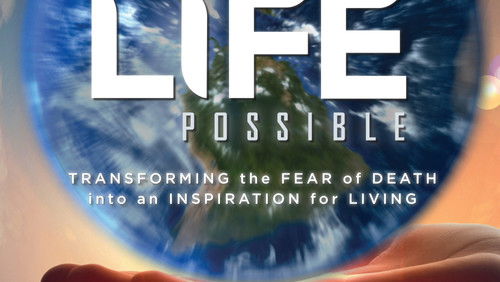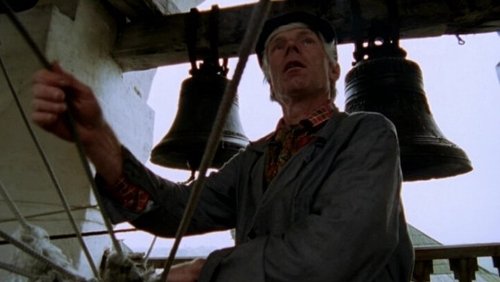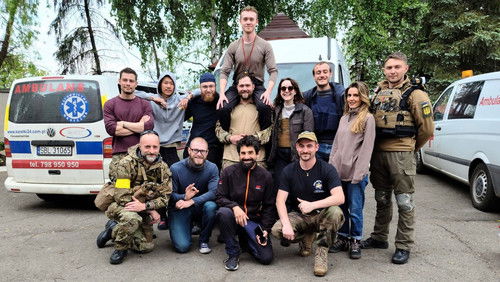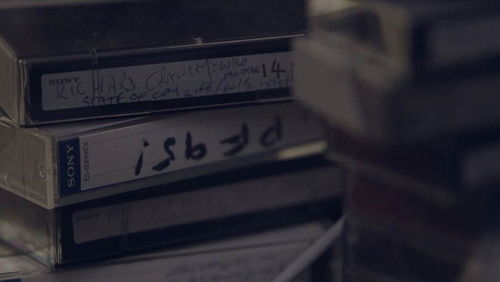Theater of Life (2016)
37KTheater of Life: Directed by Peter Svatek. With Massimo Bottura. An extraordinary soup kitchen in Milan – the Refettorio Ambrosiano – run by internationally renowned chef Massimo Bottura and 40 of the world’s best chefs including Ferran Adria, Rene Redzepi, Alain Ducasse, Daniel Humm and many others. All food served was made from the food waste of Expo Milano 2015. The film also tells the compelling story of several of the refugees and homeless the Refettorio served.
“Itu0026#39;s always a balancing act when reviewing documentaries. How to judge it mostly on its cinematic terms without letting personal opinions on the subject matter have too much influence? Making a documentary is a lot more unpredictable than a fiction film, where practically every story decision is conscious. As far as edition, direction, camera-work and all other artistic aspects can go to present a story, itu0026#39;s still only SO far. Itu0026#39;s not rare for a documentaryu0026#39;s story to go in all sorts of unexpected directions thanks to the people, subjects and/or events depicted.u003cbr/u003eu003cbr/u003eAs a documentary focused on a specific place (Milanu0026#39;s Reffetorio Ambrosiano soup kitchen) during a specific time (Expo Milan 2015), u0026quot;Theater of Lifeu0026quot; would seem to have a limited focus, useful to prevent the film from becoming too dispersed. The subject being food waste, which is personally one of my biggest pet peeves, wouldu0026#39;ve apparently made me judge it favorably as I agree with most of the opinions on the matter shown on the film. However, despite the focus being so limited and the subject so personal, the film unexpectedly ends up following a few too many threads and boarding a few too many subjects to be an in-depth portrayal of any of them.u003cbr/u003eu003cbr/u003eThen again, it never really seems to want to be that. This is a humanist documentary, about human emotions (Botturau0026#39;s ambition not to see leftover Expo ingredients go to waste like so much food around the world does on a daily basis, the dinersu0026#39; different desires, including the ultimately humanistic one of not wanting to be judged by oneu0026#39;s conditions and habits but for WHO THEY ARE) from all sorts of humans (top chefs like Bottura and René Redzepi, refugee, migrant and Italian diners, religious and charity workers involved in the Reffetorio). Its humanist agenda might ultimately make the film feel like a somewhat superficial look of it subjects and not as engrossing as it couldu0026#39;ve been but it still seems to be the filmmakersu0026#39; actual target.u003cbr/u003eu003cbr/u003eMuch like most of the chefsu0026#39; ideals, which come off as a bit naive and idealistic when contrasted with the dinersu0026#39; not hopeless but more realistic and jaded ones, u0026quot;Theater of Lifeu0026quot; might seem that way in comparison to far more in-depth and objective food and food waste documentaries. It is still an emotional look into the lives of the u0026quot;less fortunate onesu0026quot; and with this focus, it might actually end up being more effective in portraying the absurdity of the current worldwide food waste and homelessness crises than other u0026quot;drieru0026quot; ones. Thereu0026#39;s also a balancing act in documentaries between emotion and objectivity, specially in terms of which works best for a specific purpose. While I might not have fully agreed with this filmu0026#39;s balance, I can still understand and respect it.”









